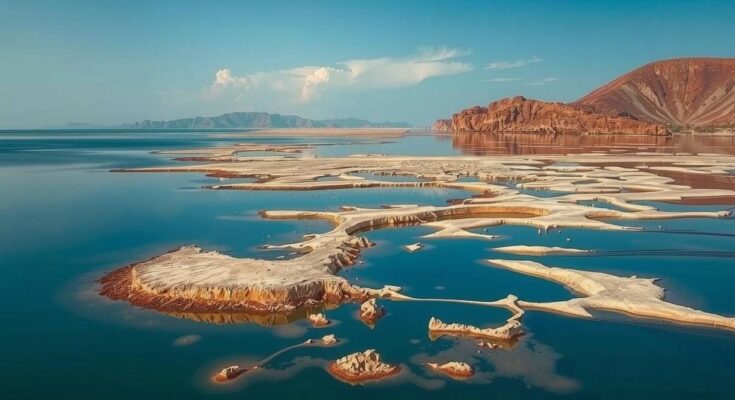Severe drought conditions have significantly lowered Lake Kariba’s water levels, threatening power supply for Zambia and Zimbabwe. Prolonged dry spells have caused extensive electricity outages, prompting calls for energy diversification. Both nations are expediting plans for coal and solar power development amid economic difficulties, with hopes for timely rains to improve the situation.
A significant drought has severely impacted Lake Kariba, the largest artificial lake in the world, reducing water levels to critical lows. This situation poses a substantial threat to the hydroelectric dam that is the primary source of electricity for both Zambia and Zimbabwe. Prolonged periods of dry weather, intensified by the El Niño phenomenon, have resulted in significant power supply disruptions, with outages reaching up to 21 hours per day in Zambia and 17 hours in Zimbabwe. Such drastic power cuts have adversely affected daily lives and further exacerbated the economic challenges faced by these nations, which were already grappling with financial instability. With only one operational turbine out of six on Zambia’s side of the lake, power rationing at the dam has become necessary, illustrating an urgent need for the diversification of energy resources. In response to this crisis, both countries are accelerating their initiatives to develop coal and solar energy plants. Although future forecasts indicate a typical rainy season for Zambia, officials are hoping for early precipitation to mitigate the ongoing challenges, as economic growth projections for both Zambia and Zimbabwe have been revised downwards.
Lake Kariba serves as an essential source of hydroelectric power, supplying a significant portion of electricity for both Zambia and Zimbabwe. The region has faced prolonged drought conditions, with changing climate patterns attributed to global phenomena such as El Niño contributing to decreased rainfall rates. This situation has highlighted the vulnerability of hydroelectric power to climatic fluctuations and the dire need for alternative energy sources to ensure energy security and economic stability in southern Africa.
In summary, the severe drought affecting Lake Kariba poses a critical threat to the electricity supply of Zambia and Zimbabwe, resulting in extensive power outages that have detrimental impacts on their economies and livelihoods. The urgency to diversify energy sources has been underscored by the situation, prompting both nations to seek alternative methods of power generation, including coal and solar energy. Moving forward, timely rains will be pivotal in alleviating the current energy crisis and supporting economic recovery.
Original Source: www.africa.com




